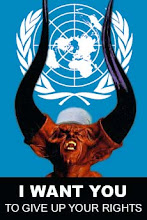Washington Post Staff Writers
Friday, June 22, 2007; Page A01
The CIA will declassify hundreds of pages of long-secret records detailing some of the intelligence agency's worst illegal abuses --the so-called "family jewels" documenting a quarter-century of overseas assassination attempts, domestic spying, kidnapping and infiltration of leftist groups from the 1950s to the 1970s, CIA Director Michael V. Hayden said yesterday.
The documents, to be publicly released next week, also include accounts of break-ins and theft, the agency's opening of private mail to and from China and the Soviet Union, wiretaps and surveillance of journalists, and a series of "unwitting" tests on U.S. civilians, including the use of drugs.
"Most of it is unflattering, but it is CIA's history," Hayden said in a speech to a conference of foreign policy historians. The documents have been sought for decades by historians, journalists and conspiracy theorists and have been the subject of many fruitless Freedom of Information Act requests.
In anticipation of the CIA's release, the National Security Archive at George Washington University yesterday published a separate set of documents from January 1975 detailing internal government discussions of the abuses. Those documents portray a rising sense of panic within the administration of President Gerald R. Ford that what then-CIA Director William E. Colby called "skeletons" in the CIA's closet had begun to be revealed in news accounts.
A New York Times article by reporter Seymour Hersh about the CIA's infiltration of antiwar groups, published in December 1974, was "just the tip of the iceberg," then-Secretary of State Henry A. Kissinger warned Ford, according to a Jan. 3 memorandum of their conversation.
Kissinger warned that if other operations were divulged, "blood will flow," saying, "For example, Robert Kennedy personally managed the operation on the assassination of [Cuban President Fidel] Castro." Kennedy was the attorney general from 1961 to 1964.
Worried that the disclosures could lead to criminal prosecutions, Kissinger added that "when the FBI has a hunting license into the CIA, this could end up worse for the country than Watergate," the scandal that led to the fall of the Nixon administration the previous year.
In a meeting at which Colby detailed the worst abuses -- after telling the president "we have a 25-year old institution which has done some things it shouldn't have" -- Ford said he would appoint a presidential commission to look into the matter. "We don't want to destroy but to preserve the CIA. But we want to make sure that illegal operations and those outside the [CIA] charter don't happen," Ford said.
Most of the major incidents and operations in the reports to be released next week were revealed in varying detail during congressional investigations that led to widespread intelligence reforms and increased oversight. But the treasure-trove of CIA documents, generated as the Vietnam War wound down and agency involvement in Nixon's "dirty tricks" political campaign began to be revealed, is expected to provide far more comprehensive accounts, written by the agency itself.
The reports, known collectively by historians and CIA officials as the "family jewels," were initially produced in response to a 1973 request by then-CIA Director James R. Schlesinger. Alarmed by press accounts of CIA involvement in Watergate under his predecessor, Schlesinger asked the agency's employees to inform him of all operations that were "outside" the agency's legal charter.
This process was unprecedented at the agency, where only a few officials had previously been privy to the scope of its illegal activities. Schlesinger collected the reports, some of which dated to the 1950s, in a folder that was inherited by his successor, Colby, in September of that year.
But it was not until Hersh's article that Colby took the file to the White House. The National Security Archive release included a six-page summary of a conversation on Jan. 3, 1975, in which Colby briefed the Justice Department for the first time on the extent of the "skeletons."
=============================================

















No comments:
Post a Comment